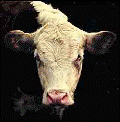Animal Science, Department of

Department of Animal Science: Dissertations, Theses, and Student Research
First Advisor
Gary Sullivan
Date of this Version
Winter 12-1-2022
Document Type
Dissertation
Citation
Furbeck, R. A. (2022). The Invisible Meat Microcosmos - Investigations of Process Meats' Specific Spoilage Organisms. [Doctoral dissertation, University of Nebraska-Lincoln].
Abstract
As humankind grows in population, so will our need to compete against bacterial populations which spoil foodstuffs before we are able to consume them. This dissertation aims to identify the bacterial communities responsible for meat spoilage, and the mechanisms that govern the behaviors of these organisms. The literature review summarizes the state of knowledge regarding factors that influence meat microbiome composition, and how analytical methods can influence research outcomes. Study 1 aimed to identify the impact of additional ingredients and processing steps on the microbial ecology of processed turkey products. The main specific spoilage organisms (SSOs) belonged to the orders Pseudomonadales, Enterobacteriales, and Lactobacillales. While thermal processing and subsequent contamination altered abundances of lactic acid bacteria, Pseudomonas spp. were observed in all samples, affirming their prevalence in products produced in the Loeffel Meat Laboratory. In an attempt to modulate raw turkey microbiomes away from rapid SSOs like pseudomonads, Study 2 utilized packaging systems with varying atmosphere compositions. While some packaging systems steered accumulation of greater abundances of lactic acid bacteria or Brochothrix, Pseudomonas spp. were still recovered from all samples and were a substantial portion of the microbial communities. This incessant microbe illustrates that starting material and processing environment play an important role in setting a microbiome prior to additional hurdles. We hypothesize that the processing environment, as a proxy effect of its geographic location, plays a role in establishing the meat microbiome. The problematic pseudomonads from the previous studies were then submitted for whole genome sequencing to gain insight into the genetic mechanisms that may allow their survival in low oxygen conditions is discussed in Chapter 4.
Advisor: Gary A. Sullivan
Included in
Agriculture Commons, Animal Sciences Commons, Food Microbiology Commons, Food Processing Commons


Comments
A DISSERTATION Presented to the Faculty of The Graduate College at the University of Nebraska In Partial Fulfillment of Requirements For the Degree of [Doctor of] Philosophy, Major: Animal Science (Meat Science & Muscle Biology), Under the Supervision of Professor Gary A. Sullivan. Lincoln, Nebraska: December 2022
Copyright © 2022 A